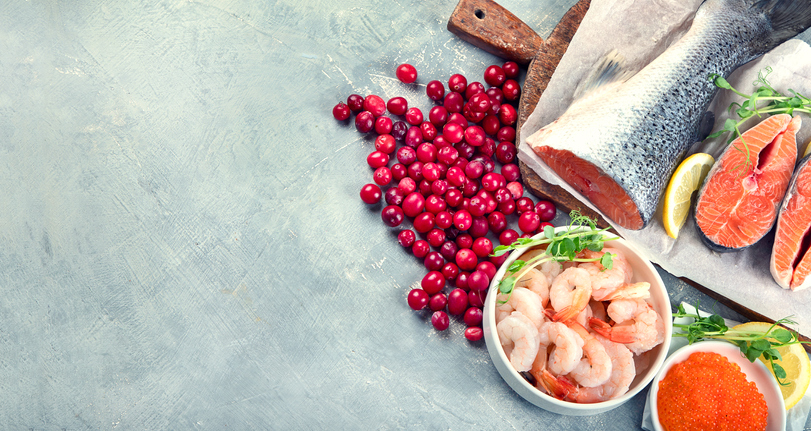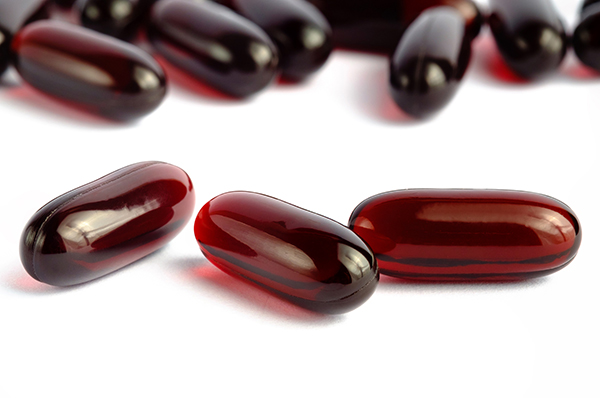Physical Address
304 North Cardinal St.
Dorchester Center, MA 02124
Physical Address
304 North Cardinal St.
Dorchester Center, MA 02124

“Eating the rainbow“It is more than a tendency to obtain photos worthy of Instagram on each meal. Vibrant and brilliant foods contain several Fitonutrients that help their body in several ways, often thanks to their antioxidant-Caletic and anti -inflammatory properties. There are thousands of these phytonutrients out there, and we are highlighting one in particular: astaxantine.
What is it? Suggestion: I could make you see red, so to speak. And in case you ask yourself, it is pronounced ahs-Theh-dan-who.
What is astaxantine?
“Astaxanthin is a carotenoid“Says Lauren Manaker, MS, RDN, LD, owner of Nutrition now advice. “Carotenoids are the ones that give food as watermelon and tomatoes their vibrant color.” They come in bright tones of red, orange and yellow and include beta -carotene, lycopene, luteine, zeaxantine and the star of the hour: astaxantine.
“Astaxantine is found in certain naturally pink or red seafood, such as salmon and shrimp,” says Manaker. Curious fact: that’s what it does Pink flamenco Due to algae, shrimp and other crustaceans they eat!
Astaxantine foods

While astaxantine supplements are common, this antioxidant compound is also naturally occurring in Many foods:
What are the benefits of astaxanthin?

He Astaxantine benefits They have been investigated for decades, but most studies have been too small to draw definitive conclusions or were made in animals, not in humans. It has been studied for its potential impact on the health of the eyes, the heart, the immune and intestinal. Here is a look at some of the research on this carotenoid.
1. Antioxidant support
Astaxantine is a powerful antioxidant compound, which can help support well -being in the body, explains Rizzo. This is beneficial to address many health concerns.
2. Brain health
Astaxanthin is remarkable by power Cross the blood brain barrier. And, with its similar and antiapoptotic antioxidant properties (which means support for cellular health), it has been studied by its impact on the brain. Specifically, researchers have analyzed “their role in reducing natural oxidative damage in the brain that is associated with aging,” he says Natalie RizzoMS, RD, author of The obvious nutrition guide for each corridor
3. Heart health
Astaxantine has been studied for heart health due to its ability to help reduce oxidative stress. Experimental studies Suggest that it can be beneficial to support the health of the heart, but studies in humans are missing, says Rizzo. “More investigations are currently being carried out, but the results seem promising.”
4. can improve sports performance
There are some studies in humans that can suggest that astaxanthin can help him with his training. After six months of participants who took 4 mg of astaxantine or a placebo, those who took the supplement showed three times more improvement in its resistance in squatting.
There are also some Animal studies That can suggest an athletic benefit, and “complement with astaxanthin can increase the time of increased exhaustion,” says Rizzo. In a 45 -day study conducted with rats, it was discovered that those who received the supplement delayed the exhaustion time in a swimming test by 29 percent.
5. Vision
In human research, it was discovered that participants who took astaxantine together with lutein and other nutrients had Decreased ocular barbercompared to those who took a placebo.
And in two studies carried out in mice, it seemed to support a healthy vision for Retinal cell protection.
6. Skin health
Astaxantine has earned a reputation among those who seek impeccable skin. Two studies in humans I saw that taking and applying astaxanthin could help maintain their bright skin: the subjects saw improvements in the humidity and elasticity of the skin, as well as a reduction in the appearance of wrinkles and age spots.
Then a 2018 research review He discovered that taking it showed positive effects on the skin, but points out that more study was needed to rule out other factors.
7. Immune health
While missing human research, Animal studies Suggest that astaxanthin can help the body produce more natural murderous antibodies and cells, which support the immune system, says Rizzo. This may be the reason why it is sometimes compared to Vitamin cShe added, since the last It is also an antioxidant And it is known to play a key role in the health of the immune system.
What are the side effects of astaxanthin?

There is little need to worry about the side effects of astaxanthin.
“In general terms, ingesting this carotenoid is safe, especially if taken in the form of food,” says Manaker. “Some have informed having experienced red stools when they take it in the form of a supplement. In my opinion, there is little inconvenient to take this carotenoid.”
But take note of this red alert: if you have an allergy to seafood or a dietary restriction, always verify the label to confirm the supplement source, warns Manaker.
What is the best Astaxantine brand?
You can find inline astaxantine supplements and in your local healthy food, cooperative and many pharmacies and conventional supermarkets.
To begin with, there are some popular astaxantine supplements to consider:
However, every time you buy a supplement, consider these questions:
Note: The dose of astaxantine varies between brands and supplements, so always comply with the suggested use instructions.
The post Astaxanthin: how a nutrient can bear his brain, heart, vision and skin first appeared in Bodi.